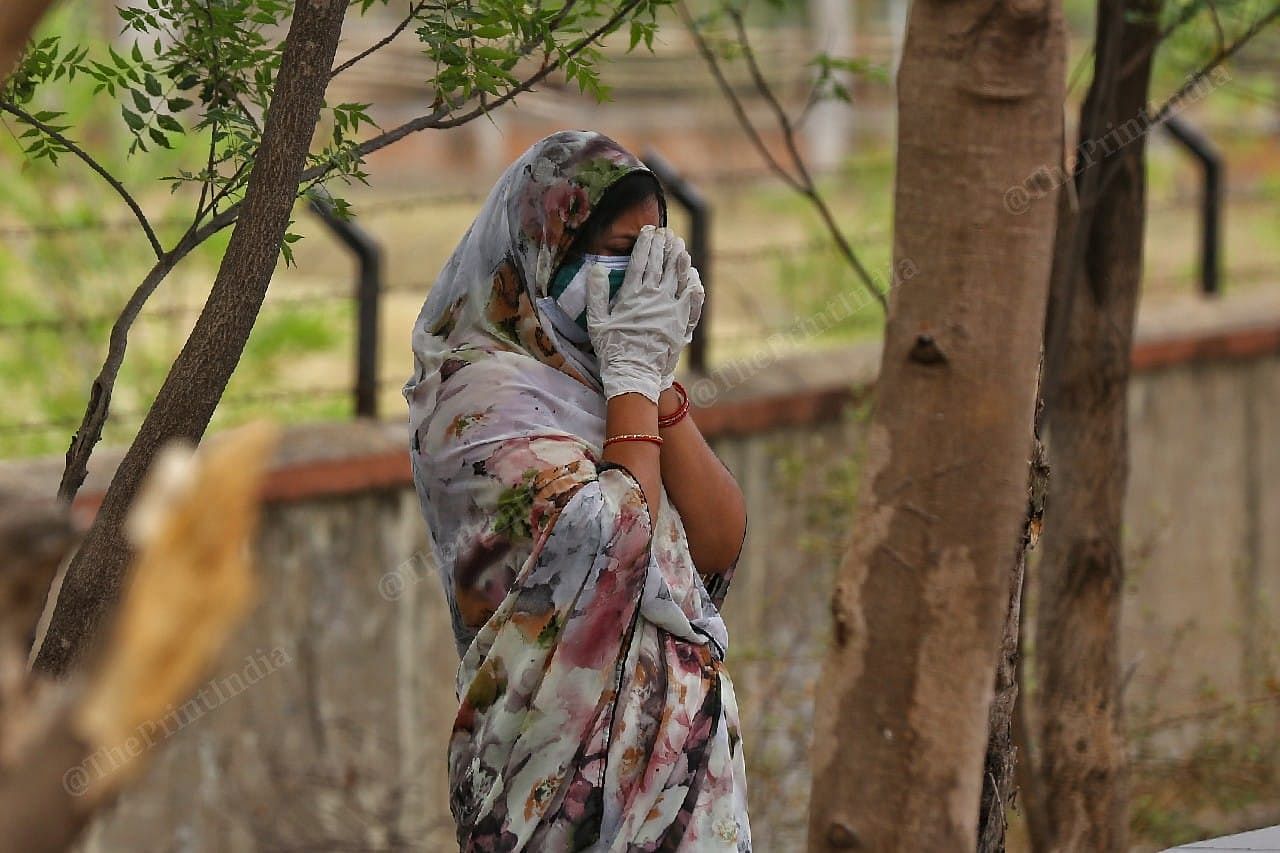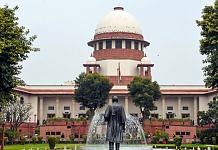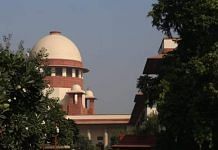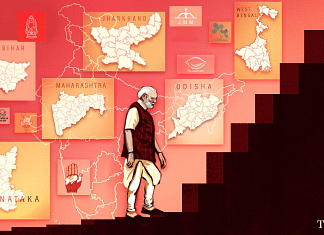Thank you dear subscribers, we are overwhelmed with your response.
Your Turn is a unique section from ThePrint featuring points of view from its subscribers. If you are a subscriber, have a point of view, please send it to us. If not, do subscribe here: https://theprint.in/subscribe/
Ever since their victory in the 2019 election, the ruling dispensation has been stumbling from one obstacle to the next. The latest dilemma to emerge in their travail is a case being heard by the Supreme Court in relation to the payment of ex-gratia to Covid-19 victims. Petitioners assert that statutory obligations under Section 12 of the Disaster Management Act, along with a central notification from 2015, compel the government to pay ex-gratia of ₹4 lakh to the victim’s families. With debt levels hitting unprecedented highs in FY-21, a decline in projected growth rates, and looming inflation fears, the demand for such disbursements could not have come at a worse time for the NDA government.
Looking at the situation on the ground, it can be nobody’s assertion that the general populace does not require governmental support. Even before the brunt of the pandemic-induced recession hit, data from the NFHS-5 indicated a worsening of health and social indicators in many states. Economic indicators then collapsed with the coming of lockdowns. Pew research centre found that the middle class of India shrank by 32 million in 2020 and that its poor population rose by 75 million due to the pandemic. The macabre images of crematoriums burning bodies day-and-night put a human face on these statistics, and strongly reiterated the need for administrative and monetary support.
Despite this situation, however, it is hard to argue that payment of ex-gratia to the victim’s families is the way forward. Firstly, the quantum of money needed to fulfil the ex-gratia obligations is huge. A compensation of ₹4 lakh to the families of the 4-lakh odd Covid victims (current official estimates) will cost the exchequer ₹16,000 crores and derail India’s financial trajectory. It will also exacerbate inflation, which has already exceeded the 2-6% band. Moreover, there are additional complications on account of incorrect death-counts, the timeline of the pandemic, and legal and executive issues, which all act in concert to hinder the undertaking of such an exercise.
Also read: NDMA ‘failed to perform duty’: SC gives it 6 weeks to decide ex gratia for Covid victims’ kin
As the process of death-audits get underway, the official death-count is being reconciled with data in the Civil Registration System (CRS) and other data-sources. While states of Karnataka and Tamil Nadu show an undercount factor of 4.7 and 6.5 in 2021, states like MP and Andhra Pradesh have an alarming undercount factor of 42 and 34 for the same period[1]. The final death-count, therefore, is expected to be orders of magnitude larger than current statistics show. Further, this uncertainty is unlikely to get resolved until the findings of the next Census emerge. No government can formulate and execute a comprehensive compensation policy with such an information deficit.
The next source of complication is the timeline of the pandemic. While experts have posited that India will be hit by a third wave in the coming months, there are various factors that play into this which cannot be predicted. First is the emergence of new variants. Mutations can lead to the emergence of more transmissible and fatal versions of the virus, which are able to bypass the protection that vaccines confer. Second factor is vaccine coverage. While we have recently hit historic highs in daily vaccinations, there is little way of knowing if this trend will sustain or peter out. Third factor is the emergence of new treatments and protocols. The efficacy, affordability, and availability of these will play a large role in determining the impact of the pandemic on society. Overall, this huge flux makes it hard to predict the monies that will be needed to meet compensation demands.
Another set of challenges that will beleaguer this scheme is potential legal and executive problems. Today, there is a requirement that all deaths in Covid-infected persons be marked as Covid-deaths, except in exceptional cases. If a compensation scheme is enacted without altering this stipulation, miscreants and bad actors will try to milk the system by purporting fake deaths on account of Covid. This will inevitably lead to legal tussles and bottleneck the compensation process – something that will be especially onerous for the poor. Furthermore, the executive department in-charge of certifying Covid-19 deaths will have a tendency to degenerate into a cesspool of corruption, without the presence of strong oversight and innovative practices. These ground-realities, which are evidenced in other welfare schemes, need to inform the formulation new policies.
Overall, it is easy to understand the legal and ethical reasoning that drives the petitioners and empathize with their aims. However, the modalities of the payment process need to be given as much attention as the morality behind it. Unless this happens, the fruits of such a policy will remain uneven and fail to help the intended beneficiaries. Greater creativity, innovative approaches, and an ear to the ground are all needed, if effective mechanisms to support the struggling populace are to be devised.
Also read: SC directs NDMA to issue guidelines for providing ex-gratia to kin of Covid victims
These pieces are being published as they have been received – they have not been edited/fact-checked by ThePrint.












COMMENTS